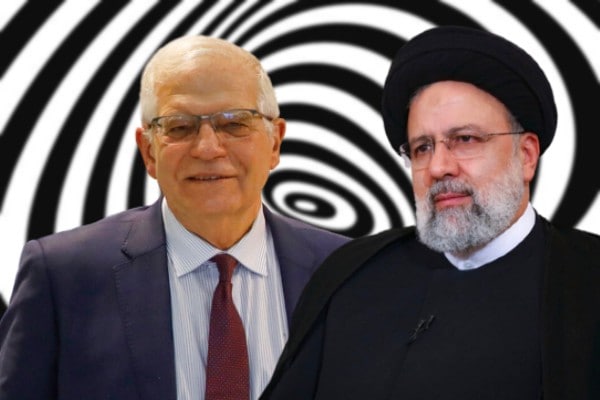Europe’s foreign policy boss is pushing hard for a new Iran deal, which would flood a tyrannical regime on the brink of nuclear weapons with billions of dollars.
By United with Israel Staff
Former U.S. President Barack Obama’s 2015 Joint Comprehensive Plan of Action (JCPOA), otherwise known as the Iran deal, delivered relief from crippling economic sanctions placed on the Islamic Republic to curb its quest for nuclear weapons.
That relief came in the form of access to $56 billion, according to a statement from then U.S. Treasury Secretary Jack Lew in July 2015. Others estimated Iran gained access to closer to $150 billion, a portion of which was in cash.
Predictably, lawmakers in countries that Iran says it wants to destroy, such as Israel and the U.S., slammed the JCPOA as a reckless gambit with meager advantages that paled in comparison to the funds it delivered to Iran.
Iran has since invested those funds in technology that enriches uranium to levels capable of producing nuclear weapons, in addition to spending them on weapons and regional terror armies with which it and its proxies attack countries such as Israel, Yemen, and Saudi Arabia.
In 2018, former U.S. President Donald Trump yanked America out of the deal, causing it too collapse.
With Europe’s backing, President Joe Biden has prioritized returning to the agreement, despite Iran making near-weekly announcements about its progress toward nuclear weapons and its desire to eliminate the world’s only Jewish state.
‘Maximum Pressure Failed’?
The European Union is also pushing to rejoin the Iran deal.
Yesterday, The Financial Times (FT) published an op-ed by Josep Borrell, the EU’s High Representative for Foreign Affairs and Security Policy.
Borrell claims the U.S.’ unilateral “maximum pressure” campaign of harsh economic sanctions “failed.”
His solution? Lifting sanctions on the world’s top state-sponsor of terror via a reinstated JCPOA.
“This text represents the best possible deal that I, as facilitator of the negotiations, see as feasible,” Borrell claims.
Borrell mentions Israel a total of zero times in his FT piece, the country Iran seeks to wipe off the map.
While commentators on both ends of the spectrum have used the term “Iran derangement syndrome” to attack their ideological opponents, Borrell’s suggestion that the way to curb Iranian aggression is to throw tens of billions of dollars at Tehran seems unhinged, particularly to residents of Israel and their allies.
On Tuesday, Israeli Defense Minister Benny Gantz warned that a revived Iran deal would only delay the inevitable. He warned that Israel could “seriously harm and delay [Iran’s] nuclear [program].”
Wisely, Israel has reserved the right to act unilaterally to thwart Iran’s pursuant of nuclear weapons, which threaten the Jewish state’s very existence.
